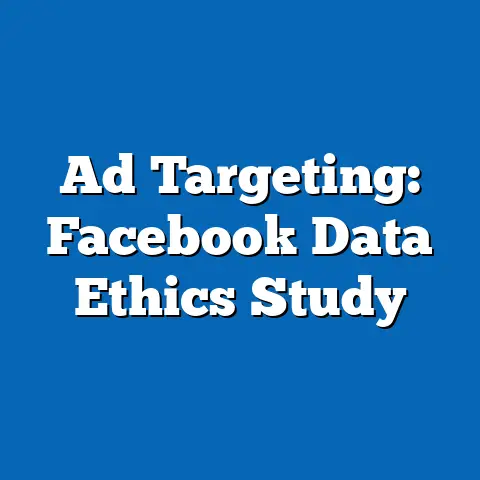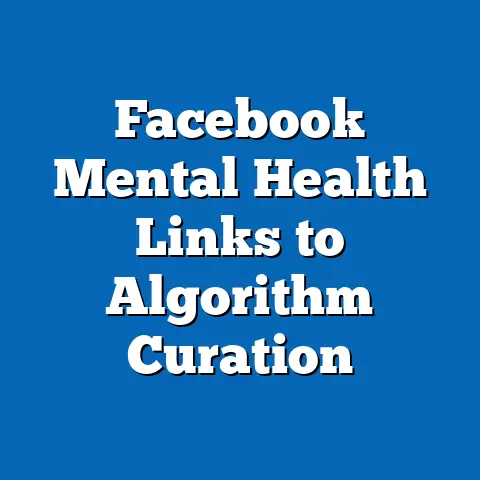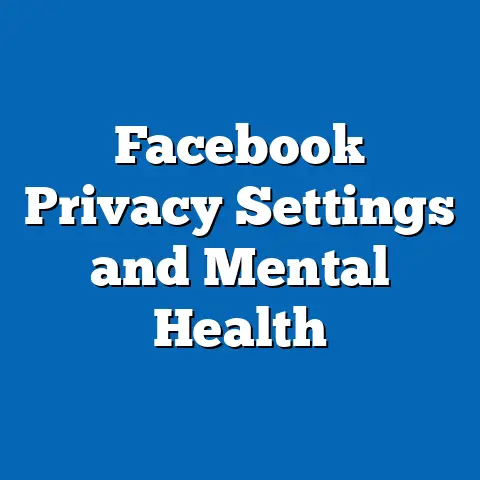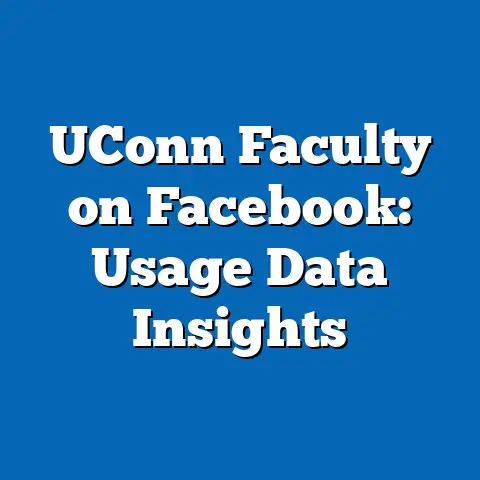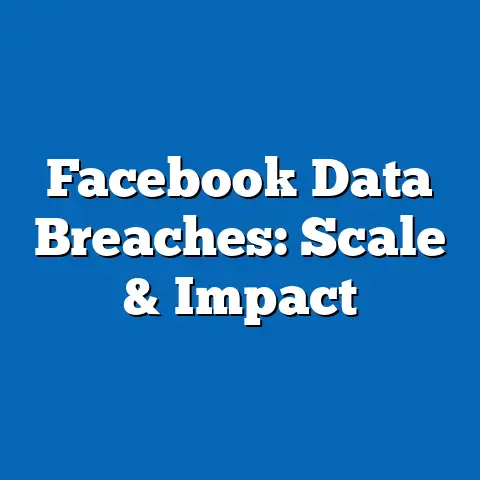Facebook Login Hacks: Frequency Data
Imagine a typical evening in a bustling urban apartment: a young professional in their late 20s, part of the Millennial generation, scrolls through their Facebook feed after a long day at work.
Their profile is a digital scrapbook of memories—photos from college, travel adventures, and witty status updates—while also serving as a gateway to professional networking and personal connections.
Suddenly, a notification pops up: “Your account has been accessed from an unrecognized device.” Panic sets in as they realize their digital identity, a cornerstone of their social and professional life, may be compromised.
This scene is not an isolated incident but a reflection of a broader societal issue: the increasing frequency of Facebook login hacks.
As social media platforms have become integral to modern life, they have also become prime targets for cyberattacks, affecting users across generations.
This article delves into the frequency data of Facebook login hacks, exploring the historical context of digital security, the generational characteristics of affected users, and the profound societal implications of these breaches.
Section 1: Historical Context of Digital Security and Social Media
However, the proliferation of digital platforms also gave rise to new vulnerabilities.
Early internet security was rudimentary, with basic password systems and minimal encryption leaving users exposed to phishing attacks, malware, and unauthorized access.
High-profile data breaches, such as the 2018 Cambridge Analytica scandal involving Facebook, exposed the fragility of user data and underscored the need for robust cybersecurity measures.
These events shaped public awareness of digital risks, yet login hacks—unauthorized attempts to access accounts—remain a persistent threat, evolving with technological advancements like AI-driven password cracking tools.
Generational exposure to these risks varies due to historical timing.
Baby Boomers (born 1946–1964) adopted social media later in life, often with limited tech literacy, making them vulnerable to scams.
Gen X (born 1965–1980) straddled the analog-to-digital transition, gaining moderate familiarity but often lacking advanced security knowledge.
Millennials (born 1981–1996) and Gen Z (born 1997–2012) grew up as digital natives, yet their heavy reliance on social media increases their exposure to hacks.
Understanding these historical and generational contexts is critical to analyzing the frequency and impact of Facebook login breaches.
Section 2: Defining Facebook Login Hacks and Frequency Data
A Facebook login hack occurs when an unauthorized individual gains access to a user’s account, often through phishing emails, stolen passwords, or exploiting weak security settings.
These breaches can lead to identity theft, financial loss, and the dissemination of personal information.
The frequency of such incidents has risen sharply over the past decade, driven by the platform’s massive user base and the increasing sophistication of cybercriminals.
According to a 2022 report by Cybersecurity Ventures, social media accounts are among the most targeted for hacks, with an estimated 1 in 5 users experiencing an attempted breach annually.
Specific to Facebook, a 2021 study by the Identity Theft Resource Center (ITRC) found that login hacks affected over 15 million users globally, with numbers trending upward due to the proliferation of dark web marketplaces selling stolen credentials.
In the U.S.
alone, the Federal Trade Commission (FTC) reported a 30% increase in social media-related identity theft complaints between 2020 and 2022.
While comprehensive, platform-specific data on Facebook hacks is often proprietary or underreported, third-party analyses provide valuable insights.
For instance, a 2023 survey by NortonLifeLock revealed that 23% of respondents had experienced a social media account hack, with Facebook cited as the most common platform.
These statistics highlight the scale of the issue, though they also underscore a key challenge: underreporting due to user embarrassment or lack of awareness.
Section 3: Generational Characteristics and Vulnerability to Hacks
Generational differences play a significant role in both the frequency of Facebook login hacks and the response to them.
Each cohort’s relationship with technology, shaped by historical and cultural factors, influences their susceptibility and coping mechanisms.
Below, we explore these dynamics while avoiding reductive stereotypes and acknowledging diversity within each group.
Baby Boomers: Late Adopters with Limited Digital Literacy
Baby Boomers, born in the post-World War II economic boom, grew up in an analog era and adopted social media primarily for family connections and nostalgia.
Their limited experience with technology often leaves them vulnerable to basic phishing scams and password reuse, as noted in a 2020 AARP study showing that 44% of older adults use the same password across multiple accounts.
Societally, their breaches can lead to significant financial losses, as many Boomers store sensitive information online.
However, not all Boomers are equally vulnerable.
Those with higher education or professional tech exposure may adopt stronger security practices.
Still, their overall risk remains elevated due to a generational lag in digital fluency.
Generation X: The Transitional Cohort
Gen X, often described as the “forgotten generation,” witnessed the advent of personal computing and the internet during their formative years.
They are more tech-savvy than Boomers but less immersed than younger generations, often using Facebook for both personal and professional networking.
A 2021 Pew Research Center report found that Gen X users are prone to hacks due to inconsistent use of two-factor authentication (2FA), with only 40% enabling this feature.
Millennials: Digital Natives with High Exposure
Millennials, raised during the internet’s mainstream adoption, view social media as an extension of their identity.
They are prolific Facebook users, often linking accounts to other services, which amplifies the fallout from hacks.
A 2022 study by Experian found that Millennials report the highest rates of social media breaches (28%), likely due to oversharing and frequent logins across public networks.
Despite their tech literacy, Millennials can be overconfident, neglecting advanced security measures.
Their societal influence, particularly in shaping digital culture, means hacks can erode trust in online platforms among peers.
Generation Z: Hyper-Connected and Risk-Aware
Gen Z, born into a fully digital world, uses Facebook alongside newer platforms like TikTok and Instagram.
Their hyper-connectivity increases exposure, but they are also the most security-conscious, with 65% using 2FA compared to 40% of Millennials, per a 2023 YPulse survey.
Hacks among Gen Z often stem from sophisticated attacks rather than user error, reflecting their advanced digital habits.
Societally, Gen Z’s response to hacks can drive demand for better platform security, as they are vocal about privacy concerns.
However, their reliance on social media for self-expression means breaches can have profound emotional impacts.
Section 4: Technological, Economic, and Social Factors Driving Hacks
The frequency of Facebook login hacks is not solely a generational issue but a product of broader systemic factors.
Technologically, the rapid evolution of hacking tools—such as brute force algorithms and social engineering tactics—outpaces many users’ ability to adapt.
Economically, the dark web economy incentivizes breaches by monetizing stolen data, with Facebook credentials often sold for as little as $5 per account, per a 2022 Digital Shadows report.
Socially, the cultural shift toward oversharing personal information online has created a goldmine for hackers.
Users across generations post birthdays, pet names, and other data often used in security questions, inadvertently aiding cybercriminals.
Moreover, the economic disparity between generations affects recovery; wealthier users may afford premium security tools, while others remain exposed.
Platform policies also play a role.
While Facebook has implemented measures like 2FA and login alerts since the mid-2010s, user adoption remains inconsistent.
A 2023 study by the Electronic Frontier Foundation (EFF) criticized social media giants for not enforcing stricter default security settings, arguing that opt-in features place undue burden on users.
Section 5: Societal and Cultural Implications of Login Hacks
The ripple effects of Facebook login hacks extend far beyond individual users, shaping societal trust, cultural norms, and institutional responses.
At a societal level, frequent breaches erode confidence in digital platforms, with a 2022 Edelman Trust Barometer report noting that only 34% of global respondents trust social media companies to protect their data.
This distrust fuels broader skepticism toward technology, particularly among older generations.
Culturally, hacks influence how personal identity is constructed in the digital age.
For Millennials and Gen Z, a hacked account can feel like a violation of selfhood, disrupting the curated narratives they build online.
This emotional toll is compounded by the potential for public humiliation if hackers post inappropriate content, as seen in numerous high-profile cases.
In the workplace, login hacks pose risks to professional ecosystems.
A breached account can leak proprietary information or damage reputations, particularly for Gen X and Millennial professionals who rely on social media for networking.
Companies are increasingly investing in cybersecurity training, with Gartner predicting a 15% rise in such spending by 2025, reflecting the economic stakes of digital security.
Section 6: Comparative Analysis of Generational Responses
Comparing generational responses to Facebook login hacks reveals distinct patterns shaped by technological fluency and cultural attitudes.
Baby Boomers often react with confusion or helplessness, frequently seeking assistance from family or tech support, as noted in a 2021 AARP survey.
Their recovery process is slower, exacerbating financial and emotional damage.
Gen X, balancing familiarity and caution, tends to take a problem-solving approach, often changing passwords or contacting platform support independently.
However, their inconsistent adoption of advanced security measures limits effectiveness.
Millennials, despite high exposure, recover relatively quickly due to tech savvy, though their emotional response can be intense due to social media’s centrality in their lives.
Gen Z stands out for proactive prevention, frequently using complex passwords and monitoring tools.
Their response to hacks often involves public advocacy for better security, reflecting a generational ethos of accountability.
Across all groups, however, a common thread emerges: the need for education and accessible resources to combat evolving threats.
Section 7: Forward-Looking Insights and Uncertainties
Looking ahead, the frequency of Facebook login hacks is likely to persist as cybercriminals adapt to new technologies like artificial intelligence and deepfake authentication.
Emerging trends, such as biometric logins, may offer solutions but also introduce new vulnerabilities if data is mishandled.
Generational shifts will also play a role; as Gen Z and future cohorts demand greater privacy, platforms may face pressure to prioritize security over user convenience.
Yet uncertainties remain.
The pace of regulatory intervention, such as the European Union’s GDPR or potential U.S.
legislation, could reshape platform accountability but faces political and corporate resistance.
Additionally, the digital divide—disparities in tech access and literacy—may widen vulnerabilities for marginalized groups within each generation, complicating universal solutions.
Societally, the challenge lies in balancing innovation with trust.
Platforms like Facebook must invest in user education, default security features, and transparent breach reporting to rebuild confidence.
Meanwhile, individuals across generations must navigate an increasingly complex digital landscape, where personal responsibility and systemic reform are both critical to mitigating risks.
Conclusion
Facebook login hacks represent a pervasive threat in an era where digital platforms underpin social, professional, and cultural life.
Frequency data underscores the scale of the issue, with millions affected annually, while generational analysis reveals diverse vulnerabilities shaped by historical context and technological fluency.
From Baby Boomers’ digital naivety to Gen Z’s proactive advocacy, each cohort faces unique challenges and contributes to broader societal implications, from eroded trust to workplace risks.
As we move forward, addressing this issue requires a multifaceted approach—combining technological innovation, policy reform, and user education—to safeguard digital identities.
While the future remains uncertain, fostering a culture of security awareness across generations offers a path toward resilience in an interconnected world.
This analysis serves as a call to action for individuals, platforms, and policymakers alike to prioritize the protection of our shared digital spaces.

